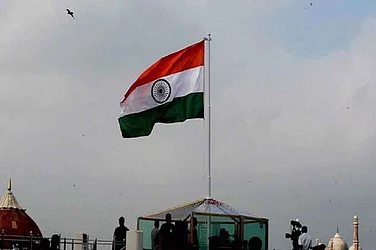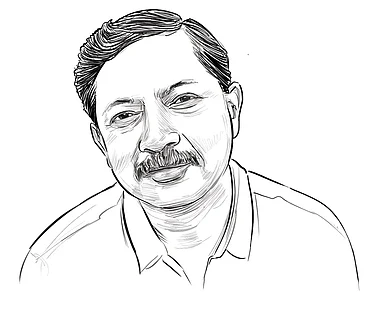The Jammu and Kashmir National Conference (JKNC) on Wednesday assured that the party is committed to eradicating the drug menace, which is a "catastrophic epidemic," from Jammu and Kashmir once it returns to power.
The party released a report titled "The Silent Epidemic: Drug Addiction in Jammu and Kashmir," and cited the Kashmir conflict as one of the causes behind the epidemic. "Kashmir has long been a hotbed of conflict between India and Pakistan since their partition. Extensive research indicates that this ongoing conflict has led to a significant increase in substance use and the prevalence of disorders in the region," the report reads.
The report says various agencies have made claims and counterclaims regarding the root causes of this issue. "Some agencies point fingers at external entities, accusing them of smuggling drugs across the border to fund militant activities in the region. This phenomenon has been termed 'Narco-terrorism.' On the other hand, certain agencies attribute the rise in substance abuse to the moral degradation and collapse of the traditional social order in Kashmir.”
The protracted conflict in Kashmir has taken a significant toll on the mental well-being of its people, leading health experts to describe the Kashmiri population as traumatised. "Consequently, there has been a substantial increase in patients displaying symptoms of depression, anxiety, OCD (obsessive-compulsive disorder), and PTSD (Post-Traumatic Stress Disorder) in Kashmir. These patients require medication to cope with stress-related conditions, ultimately leading to drug dependence and addiction," the report reads.
According to medical professionals, the ability to cope with trauma varies from person to person. Individuals who experience trauma for the first time are generally better equipped to handle it, whereas those who endure a series of traumatic events tend to have a weakened coping mechanism. "It is crucial to address these issues without engaging in divisive blame games, as they ultimately harm the welfare of the people in our state/union territory," the report reads.
A decade ago, the National Institute of Mental Health and Neurosciences in Srinagar used to witness 10 to 15 cases of drug addiction per day. However, after 2019, they saw 150 to 200 cases per day, which is a highly alarming trend, the report said. Further quoting experts, it noted that before the abrogation of Article 370 on August 5, 2019, the crimes committed by drug addicts primarily involved burglary and theft, which served to maintain their cash flow. However, following the abrogation of Article 370, the crimes committed by these addicts took on a more dangerous path.
“Addressing this issue requires comprehensive efforts, creating a congenial political atmosphere, including providing better employment opportunities, enhancing recreational facilities, and implementing effective strategies to curb drug trafficking and availability,” the report reads.
In March 2023, NC parliament member Hasnain Masoodi asked a question about drug addiction in the Lok Sabha. The Union Minister of Social Justice and Empowerment responded, stating that 10 lakh people in Jammu and Kashmir are involved in drug abuse, with 1.44 lakh using cannabis, 5.34 lakh men involved in opioid addiction, and 8,000 women also affected by opioid addiction.
The party also says wrong investigations, delayed and cumbersome trials, witnesses turning hostile, and producing weak evidence have not resulted in the required conviction rate, and the same continues to remain below average. "Hence, there appears to be no deterrence, and the illicit drug business continues to grow."
The party also says a large number of government-approved NGOs are working in the field against drug abuse in Jammu and Kashmir, some of which are funded by the government. "It is not known whether any audit of the performance of these NGOs has ever been conducted by the government to study the real impact or otherwise, which these NGOs might have made. It is also possible that some, if not all, of these NGOs only exist on paper without making any meaningful contribution to the field. A detailed appraisal of all such NGOs must be conducted by the government agencies so that corrective measures are taken, and effective contributions on the part of these NGOs are possible on the ground."
At present in India, the penal act to combat drug abuse is the Narcotic Drugs and Psychotropic Substances Prevention Act 1985. "The government has, with time, empowered/authorised a large number of agencies, including the Army, the Security Forces, the Revenue, Intelligence, besides the Police and the Narcotic Control Bureau, to take action under this Act," the party notes.
"As far as the law (NDPS Act) is concerned, it is a special Act and is quite stringent and tough, which also provides for certain safeguards against its misuse by the enforcement agencies. Recommending that this Act be made more stringent may be a risky proposition, taking into account the track record of our enforcement/police agencies," the report said.

























